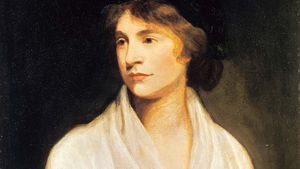Poor Folk is Fyodor Dostoevsky’s debut novel. Written in the epistolary style, this novella promises the potential of the great author he would become.
The story takes the form of correspondence between an old man and a young woman who lives across the street. Through these correspondences, Dostoevsky addresses the pressing issue of the Petersboughers, which is poverty. Dostoevsky’s sympathy for the poor and suffering is quite apparent. He goes to great lengths to elucidate the position of the lower working-class families, who could barely cover their basic necessities with their meager salary. The detailed account of the never-ending suffering and the misfortunes of the underprivileged is heartbreaking. You feel their misery and shame. So, although there is not much to the story, the sensitive theme and Dostoevsky’s beautiful writing make this debut novel worthy of reader attention.
Many debut novels betray the fact that they were the first product of the author. But it is not so here, not with Dostoevsky. Even in his first novel, Dostoevsky has maintained a high level of proficiency for a first-timer. That proves that he had the potential to become a grandmaster in classical literature from the beginning. Of course, Dostoevsky is one of my favourite classical authors, but this assessment is by no means biased. If you think I’m, read it and judge for yourselves.
As always, I was touched by the human sympathy and compassion of the author. Dostoevsky was a humane author, who wrote about the real nature of human psychology and human suffering. His works do not make you gay and happy. Rather, Dostoevsky wrote about the reality of human nature with much feeling forcing on the public the necessity of understanding and accepting the true position of human nature. If you look carefully, his loyalty to this theme is quite obvious throughout his work. But it amazes me that Dostoevsky, whose true motive for writing this novella was to extricate himself from financial difficulties that had arisen out of his gambling addiction, touched on this deeply sensitive theme in his debut. It had the necessary effect Dostoevsky expected; that is, the novella became a commercial success. But to risk a not too interesting storyline to bring about all his philosophy on human nature is something I consider extremely bold for a man who wrote it to make money.
Rating: 3/5



